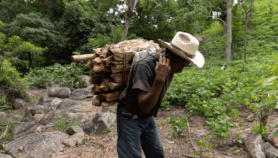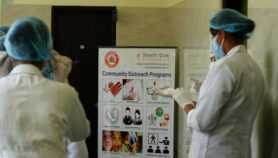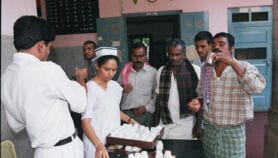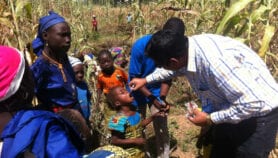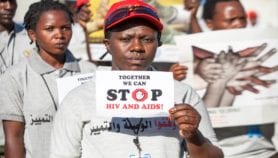Send to a friend
The details you provide on this page will not be used to send unsolicited email, and will not be sold to a 3rd party. See privacy policy.
The Sustainable Development Goals (SDGs) reflect unprecedented ambition for the wellbeing of the planet. There are 169 targets and are estimated to costs several times as much as the Millennium Development Goals. Although the real ambition is in the process.
The attempt to approach these goals with a strong understanding of the interconnectedness of planetary systems and the required coherence across countries and policy mechanisms is a crucial feature of the SDGs and the attendant Agenda 2030. Similarly, the commitment to “leave no one behind” presents a formidable task considering the universality of the goals — not just for low income countries — and the breadth of those targets.
The sustainable development framework also presents a unique opportunity for science to influence policy. The annual global sustainable development report is written principally by scientists and is well positioned to be a report card on SDG progress. It’s true the SDGs are not the only game in town but the Africa Union’s Agenda 2063 is even more ambitious in the scale of transformation expected. There is little point in routing around for a lower common denominator.
To support science for the SDGs, the United Kingdom has established the Global Challenges Research Fund (GCRF), for which a call for evidence was launched on 8 August. In the context set out above the GCRF should not be business as usual. It would be a failure of imagination and responsibility to deliver a research programme which looks like a global research call that might have been issued 10 years ago. This is underscored by consideration of British national interests, Oxfam blogger Duncan Green called London the Silicon Valley of global development and the research fund should be in keeping with the game changing reputation of UK aid.
The GCRF has made a promising start with its high level challenges – as this project on the key 100 questions reveals, synthesising the essential challenges is no easy task. But the research topics are just the start, there are three features which would suggest that the GCRF is fit for purpose.
1. We need to be thinking about the nexus and interrelationships. The interdivisibilty of the goals is one of their key characteristics and an area where research has made a real contribution to policy understanding. The International Science Council (ICSU) has published a framework which seeks to consolidate a spectrum of synergies and trade-offs which should become part of standard language for line ministries around the world. This suggests under-explored opportunities for inter-disciplinary and trans-disciplinary work.
2. It’s important to start with an idea of the impact. Research for international development is inherently instrumental. Yet the world of development practice is full of research quietly waiting to fulfil its potential. This is a dubious situation in view of climate change, population growth and antimicrobial resistance to name a few. Articulating demand depends, in part, on developing early, considered relationships with the users and stakeholders of research.
3. We must invest in understanding research use. The health sector came to understand some time ago that the research on drugs was not enough to deliver health outcomes, we also needed to understand the context and systems around delivery. This awareness is only emerging, at best, in other sectors. There is precious little work on documenting, interrogating and building practice around what works for research uptake, particularly in challenging contexts with fragile public sectors or under-engaged constituencies. (I have written about this previously.) The disparity in intellectual effort between doing new research and understanding how to get it to work is understandable but needs to be monitored. The current debate on updating the practice of systematic reviews comes out of a concern to make the body of available research more accessible and stimulating to those who should be using it. The opportunities for work on research systems are varied and crucial.
This blog was published as part of a blog series by the UK Collaborative on Development Sciences in response to the GCRF call for evidence on designing the research call.





